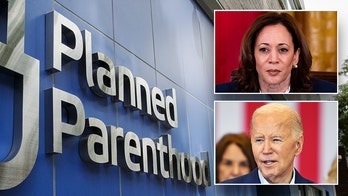The glare of the spotlight has shifted in Washington. Only two days ago the big issues in the nation's capital were health care reform and terrorism. But now the focus is squarely on the calamity in earthquake-ravaged Haiti.
Lawmakers returned to Washington this month bracing for a battle to the finish over the health care overhaul that needs to pass through both chambers of Congress again in its final form before it heads to the president's desk. Several congressional committees are also preparing for briefings and hearings on the failed Christmas Day terror attack, following weeks of finger-pointing and accusations over the near-disaster.
But while those issues remain on the front-burner -- a House panel received a briefing on the Christmas incident Wednesday and closed-door health care talks are underway -- they are no longer the focus of Washington's attention.
The Obama administration is devoting the country's financial, military and civilian resources to the relief effort in Haiti, sending ships, supplies and troops and committing $100 million right off the bat to the island nation's recovery. The White House has also tapped former Presidents Bill Clinton and George W. Bush to help lead recovery efforts.
The frenzy to rescue survivors, evacuate Americans and provide food and medical treatment to victims has, ironically, provided the administration some breathing room to take care of other business in a momentarily nonpartisan atmosphere.
On health care reform, officials said Thursday that the White House had struck a tentative deal with union and congressional leaders over a tax on high-cost, so-called "Cadillac" insurance plans. The tax, which Obama supports, is included in the Senate health care bill, but House Democrats and unions oppose it out of concern it will cut into union benefits enjoyed by middle-class workers. According to one official, the compromise would raise the value of the plans that would be targeted for the tax, and it would exclude dental and vision coverage from the calculation.
House, Senate and White House officials met all day Wednesday and continued to meet Thursday. Gone, however, was the public griping from House Democrats who earlier in the week complained they were being forced to accept the Senate version of the bill and warned that talks were about to hit an "impasse."
Instead, House Ways and Means Committee Chairman Charles Rangel, D-N.Y., told reporters Thursday that negotiators are pushing to reach a broad agreement on the legislation by Friday, and then they will send the compromise package to the Congressional Budget Office for its estimates.
The agreement in principle would cover key issues such as how many Americans will get coverage, and how to pay for it. Certain issues, including restrictions on taxpayer funding for abortion, will be resolved later.
"We're shooting for tomorrow," Rangel said after meeting with Speaker Nancy Pelosi and other leaders. "We hope to have the whole thing, as much as we can have (for the budget office) to be able to start working."
The fiercest debate over health care reform has shifted away from Washington to Massachusetts, where the issue is at the heart of a high-stakes special election to fill the Senate seat formerly held by the late Sen. Ted Kennedy.
In that race, GOP candidate Scott Brown has been reminding voters that, if he defeats Democratic candidate Martha Coakley on Tuesday, he will become the 41st Republican in the Senate and wipe out the Democrats' filibuster-proof 60-vote supermajority.
As he continued to outline and oversee U.S. assistance to Haiti, Obama also pushed ahead with another domestic initiative on Thursday. The president announced a new tax on the largest banks, which he pitched as a plan to recoup every dollar spent from the $700 billion Wall Street bailout fund. Obama described bank bonuses as "obscene" and said the new tax would cover a projected $117 billion shortfall in the government's financial crisis bailout fund.
On this and the health care talks, the usual critics were relatively silent. Most lawmakers visible in the media were discussing Haiti, reserving their political complaints for a later time.
Republican Rep. Pete Hoesktra, though, continued to keep some pressure on the administration over the Christmas Day attack, after he and other lawmakers received a briefing on the matter Wednesday.
"What did we do between Fort Hood and Christmas Day?" the ranking Republican on the House intelligence committee said, referring to the warning signs that were missed before the shooting at the Texas military post and the attempted bombing of the Northwest Airlines flight.
The Associated Press contributed to this report.




